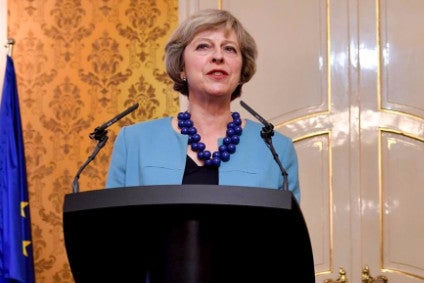Amid the uncertainty following the UK vote to leave the EU on 23 June, British food companies and global food giants with UK sites will have been buoyed by a question at Prime Minister’s Questions in the House of Commons yesterday (7 Sept) – and Theresa May’s response.
The fairly limited airtime food and farming received during the referendum campaigns or from the mainstream media during the run-up to the vote tended to focus more on farming than on food manufacturing. However, the three primary concerns that preoccupy farmers – preservation of agricultural subsidies, risks to trade and disruption of the labour market – are every bit as significant to food processors as primary agricultural producers.
The question from Neil Parish, Conservative MP for Tiverton and Honiton in Devon, began by welcoming the announcement by the Chancellor of the Exchequer that support for farmers would be maintained. The Chancellor’s assurance only goes up to 2020 but in an environment where firm commitments are in short supply, farmers and the food companies buying their products can, as Parish asserted, take confidence from the announcement.
Parish then went on to say: “British farmers produce some of the best welfare-friendly and environmentally friendly food in the world. We need to make sure that both farming and the food processing industry are protected in any trade deals we make. I seek that reassurance from my right honourable friend.”
The Prime Minister also acknowledged both farming and food manufacture in her reply. May said Parish was “absolutely right”, adding: “We need to recognise the significant role that the food and farming industry plays in the United Kingdom, and we will of course look to work with the sector to see how to develop those industries with a view to the trade deals that will play their part as we look to the future.”
That the Prime Minister is articulating both farming and food processing must be safeguarded will certainly be welcomed. However, what food companies and farmers are finding difficult to get higher on the political agenda are the particularly severe implications of tighter controls on immigration and migrant labour, presumed to be inherent in any Brexit deal, for their sectors.

US Tariffs are shifting - will you react or anticipate?
Don’t let policy changes catch you off guard. Stay proactive with real-time data and expert analysis.
By GlobalDataThe focal point of Brexit debate and discussion is the impact on trade and the economy of the UK no longer being in the EU single market, the price it would seemingly have to pay for ending free movement of labour from the EU. The direct impact of the end of free movement of labour from the EU on the UK economy is much less discussed and much less appreciated by the public.
Along with the National Health Service, agriculture and food processing are among the most reliant on migrant labour of any sectors in the UK.
The Prime Minister said on taking office that “Brexit means Brexit” and ever since the question on everyone’s lips has been “What does ‘Brexit means Brexit’ mean?”.
There was possibly good news for food and farming in another small insight this week into what the prime minister thinks it means, namely her rejection of a points-based system to control immigration.
May dislikes the points-based approach because it doesn’t actually give the UK government the control of immigration that most of those voting for Brexit were calling for. Yes, it is blind to an immigrant’s origins and an objective measure but, with a view to meeting the needs of the labour market, it is arbitrary.
Rather, May favours immigration controls that allow the government to choose what type of labour it needs to import and tailor the system accordingly. For the food processing and farming sectors, that means a system that retains the current high levels of unskilled labour working in food processing plants, in agriculture and in horticulture, including huge seasonal influxes, much of which comes in, flexibly and freely, from the EU.





